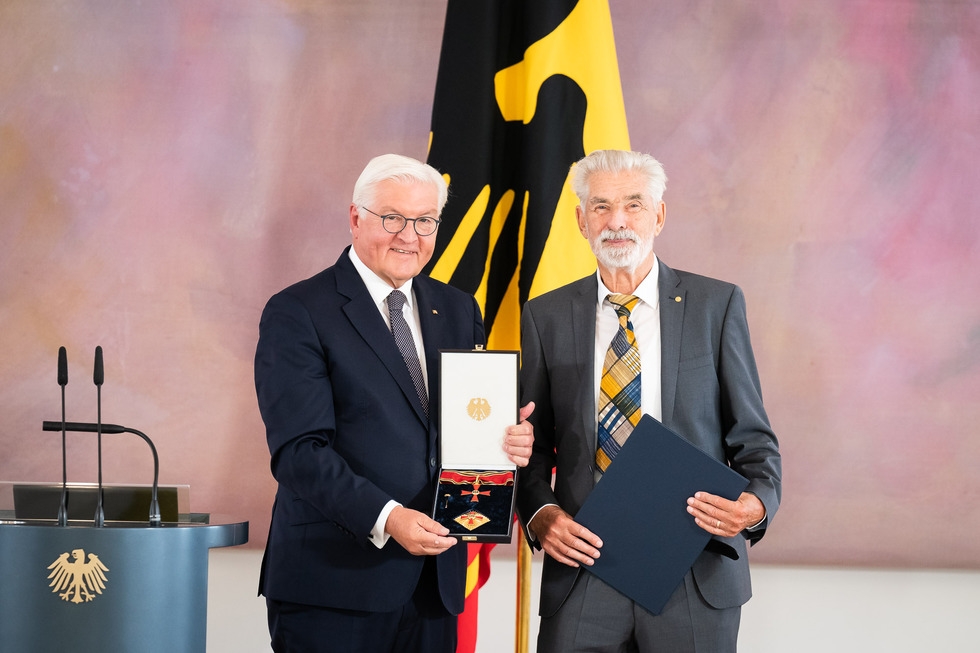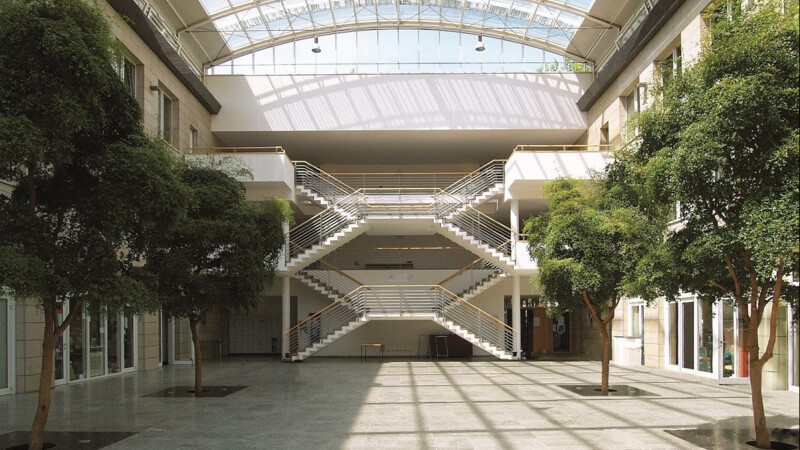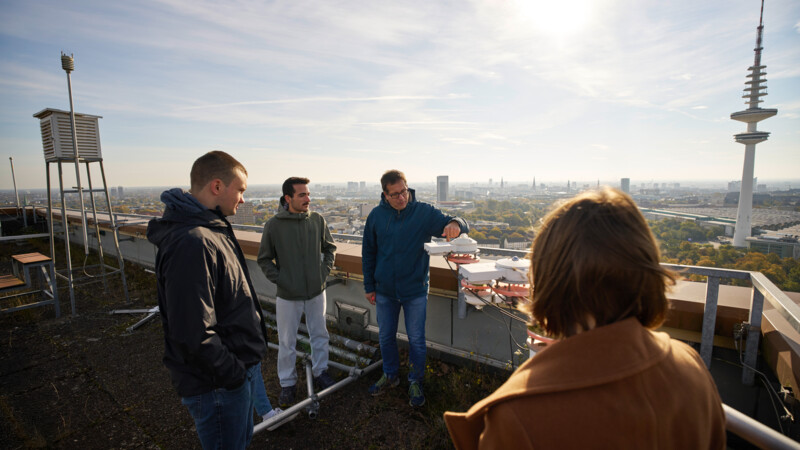The MPI-M also cooperates with the Cluster of Excellence "Climate, Climatic Change, and Society" (CLICCS), which is funded by the Excellence Strategy of the German government and state governments. CLICCS combines findings from climate research with economics and social sciences and recommends how society and politicians should act. It also explores whether and how the 1.5 degree global warming limit can be achieved. Professor Klaus Hasselmann, founding director of the MPI-M, won the Nobel Prize in Physics in 2021 for developing a model that linked weather and climate, and showing how short-term phenomena such as rainfall are linked to long-term developments such as ocean currents. His methods have been used to prove that global warming is due to human emissions of CO2. This honour was followed a year later by Germany's Federal Cross of Merit. During his laudatio, Frank-Walter Steinmeier, President of Germany, remarked: "You focussed on whether humans are changing the climate or whether it is due to natural climate fluctuations. Your model proves that the rise in temperature is due to our human emissions of CO2. The physical models show us the devastating consequences for people and the environment, if we fail to meet our climate targets." Hasselmann, who hails from Hamburg, headed MPI-M until 1999 and from 1988 to 1999 was Scientific Director of the German Climate Computing Centre (DKRZ) at the University of Hamburg.
The Max Planck Institute for Meteorology (MPI-M) in Hamburg is celebrating its 50th anniversary this year. Human activity is "amplifying the atmosphere’s greenhouse effect," according to its website. Thus, the institute's global climate research team focuses mainly on climate, physics, dynamics and variability with other global research institutions. MPI-M is part of the Klima Campus Hamburg network which includes e.g., the University of Hamburg's Center for Earth System Research and Sustainability (CEN) as well as other research institutions and federal authorities. Interdisciplinary research in MPI-M focuses on changing sea levels and the impact on coastal regions, and on identifying particularly suitable locations for growing crops or for setting up wind power, solar and biogas plants.
Nobel Prize and cluster of excellence

DKRZ's super computer
In 2022, DKRZ commissioned the high-performance computer "Levante" which quadrupled the computing power of its predecessor, Mistral. Up to 14 quadrillion mathematical operations per second enable the simulation of micro-scale climate processes, such as detailed cloud structures and the behaviour of different cloud types. The vastly enhanced visualisation of atmospheric circulation has led to significantly improved climate predictions. "Levante is a milestone in scientific computing, as more climate simulations with high-resolution models, e.g., a grid resolution of 2.5 km, and for several decades are now possible, allowing climate science to break new scientific ground," said Professor Bjorn Stevens, Director of the Department of Climate Physics. Until now, MPI-M has invested some EUR 45 million in "Levante" with the City of Hamburg and the Helmholtz Association. More than 1,500 scientists now use DKRZ's computers and services. Climate researchers all over Germany and international researchers including those of the European Centre for Medium-Range Weather Forecasts (ECMWF) can now apply for computing time. This international organisation specialises in producing global weather forecasts.

Helmholtz Centre Hereon
The Helmholtz Centre Hereon in Geesthacht counts among DKRZ's key partners and shareholders. Around 1,000 employees at Hereon, which is a play on "Helmholtz", "resilience" and "innovation", learn and develop innovations to preserve a world worth living in. The research centre is part of an international network that includes researchers from the University of Geneva (UNIGEO) and DESY. Hereon, CLICCS, the Universities of Hamburg and Bern and the MPI-M have developed the new ICON-Coast model to simulate the transport, storage and turnover of carbon in the global coastal ocean. This is an attempt to better understand the spread of CO2 emissions and the interactions between the atmosphere, ocean and land that regulate them.

Anniversary events
Since 1975, the MPI-M has had close ties with many research institutions and plays a key role in shaping climate research in Hamburg. As part of its 50th anniversary celebrations, the institute is hosting a series of lectures, a symposium at the Patriotische Gesellschaft and a reception for the senate in Hamburg's City Hall. An exhibition entitled "50 Years of Climate Research" will open in Hamburg's Rathausdiele on April 23 until May 26, 2025 followed by a concert in the Oberhafenquartier on June 12 and the "Climate Exploration in Lively Liaison with the Ocean" (CELLO) conference from September 16 to 18 with experts from all over the globe. The researchers will discuss the latest approaches to ocean turbulence, interaction between air, sea and ice as well as modelling based on Hasselmann's achievements.
ys/pb
Sources and further information
More
Similar articles

Climate expert Mojib Latif: Moving from knowledge to action

Hamburg setting example for sustainable future

More cooperation needed, KLIMAready survey finds
